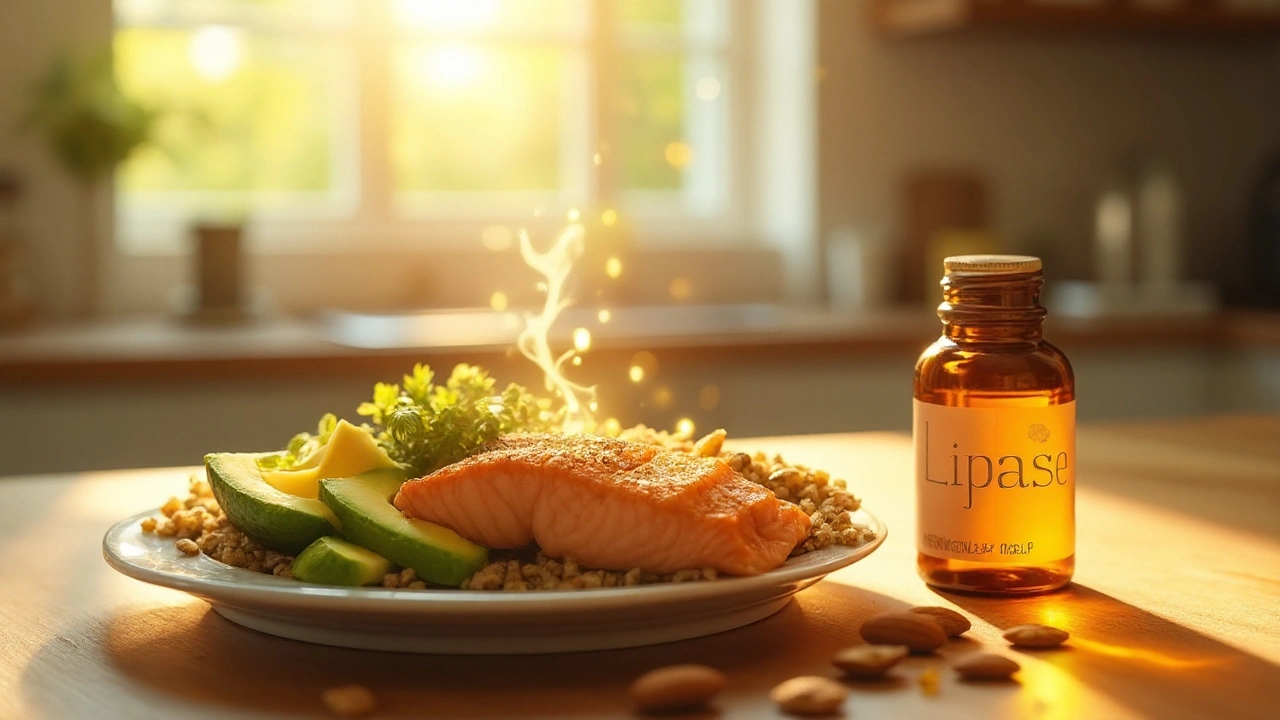Lipase Supplement: What It Is and Why You Might Need It
Ever feel bloated after a fatty meal? Lipase is the enzyme that breaks down fats so your body can absorb them. A lipase supplement adds extra enzyme power when yours isn’t enough. It’s especially handy for people with pancreatic insufficiency, gallbladder removal, or anyone who struggles with high‑fat meals.
How Lipase Works and Who Benefits
When you eat, your pancreas releases lipase into the small intestine. The enzyme splits fat molecules into smaller parts that can be absorbed. If your pancreas can’t keep up, fat stays undigested, leading to gas, cramping, and oily stools. A supplement fills that gap. Most users report smoother digestion, less gas, and more energy after meals.
Common groups that turn to lipase include:
- People with chronic pancreatitis or cystic fibrosis
- Those who have had their gallbladder removed
- Older adults whose enzyme production naturally declines
- Anyone on a high‑fat diet who wants better tolerance
Choosing the Right Dosage and Form
Dosage varies a lot between brands. Start low—often 500–1,000 lipase units per meal—and see how you feel. Some folks need up to 3,000 units for larger meals. The label will tell you the unit count per capsule. If you’re unsure, talk to a pharmacist or doctor.
Most lipase supplements come as capsules or chewables. Capsules are easier to swallow and usually have a stable, coated form that survives stomach acid. Chewables can be good for kids or people who dislike pills, but check that they contain enough active units.
Take lipase right before or during the meal. The enzyme works best when it meets the fat as it enters the intestine. If you miss a dose, don’t double up later; just stay with the regular schedule.
Safety, Side Effects, and Interactions
Lipase is generally safe for most adults. The most common side effect is a mild stomach ache, which usually goes away as your body adjusts. Rarely, high doses can cause diarrhea or oily stools because extra enzyme speeds up fat breakdown.
Because lipase is a digestive enzyme, it doesn’t interact with most prescription drugs. However, if you’re on pancreatic enzyme replacements for cystic fibrosis, talk to your doctor before adding another source.
If you’re pregnant, nursing, or have a known allergy to the supplement’s filler ingredients, talk to a health professional first. Always read the label for potential allergens like soy or dairy.
What the Research Says
Clinical studies show that lipase supplements improve fat absorption in people with pancreatic insufficiency. One trial found a 30% reduction in stool fat after a month of regular use. Evidence for healthy adults is less robust, but many report subjective improvements in comfort after fatty meals.
Look for products that list the exact lipase unit count and have third‑party testing. That’s a good sign the manufacturer cares about quality.
Bottom line: If you struggle with digesting fats, a lipase supplement can be a simple, low‑risk way to feel better after meals. Start with a low dose, watch how your body reacts, and adjust as needed. And always keep a health professional in the loop if you have underlying conditions.

- Aug, 7 2025
- Comments 7